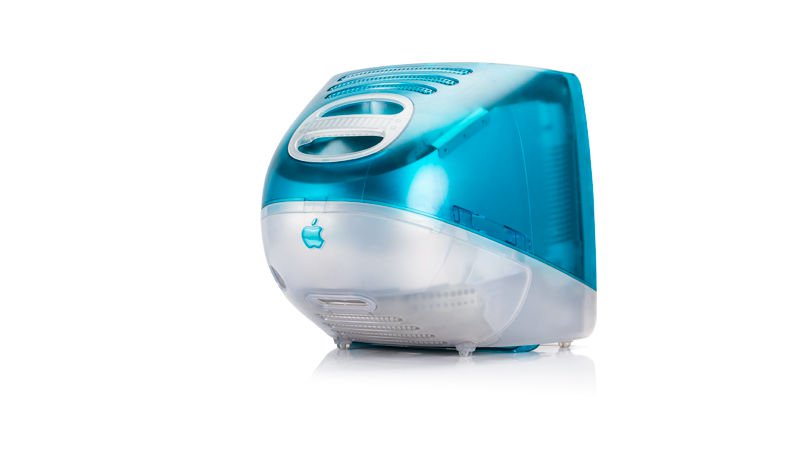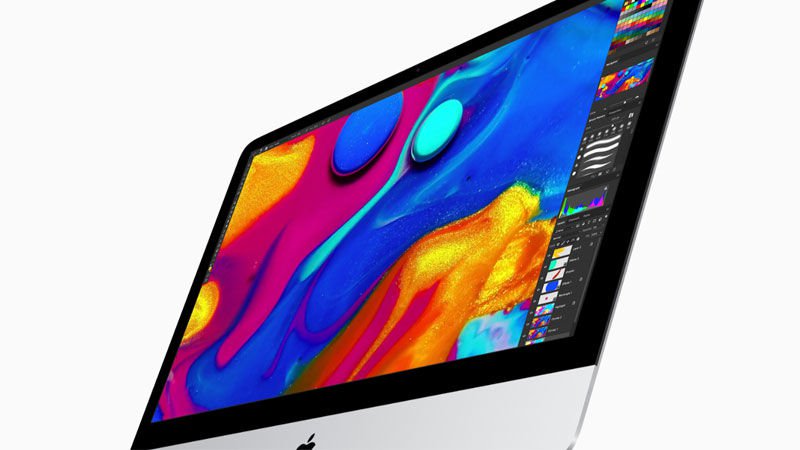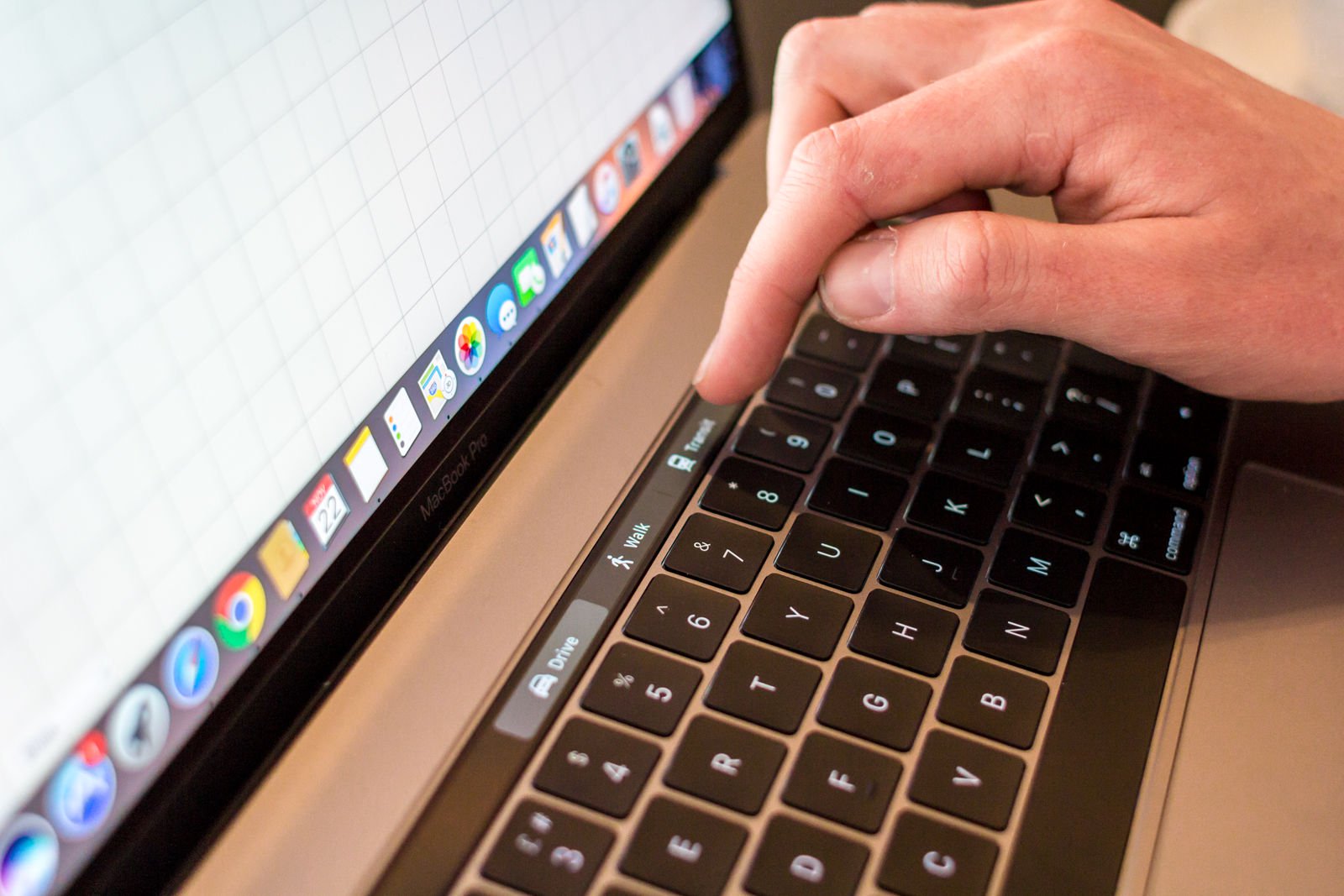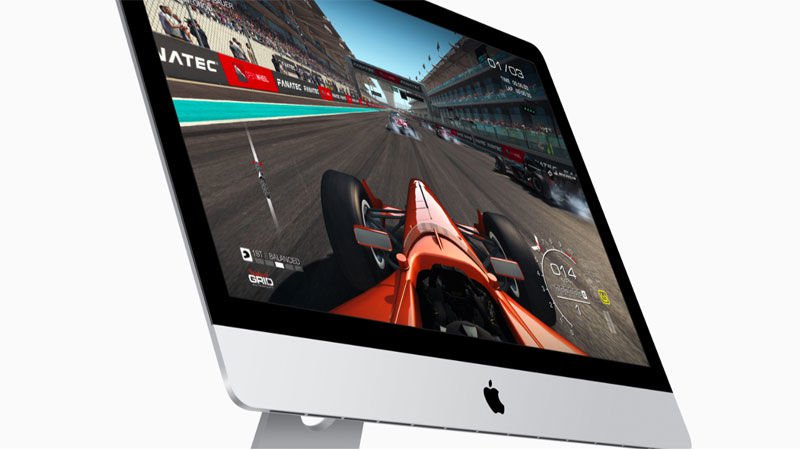The iMac Pro has just arrived, but if that machine is overkill for you, you might be wondering what’s in store for the standard iMac this year.
In this article we answer all your questions, from whether the iMac will be offered in space grey just like the iMac Pro, and whether it will utilise the new cooling system found in that model. We also assess rumours, such as a claim from a Foxconn insider that the iMac will be redesigned in 2018 - could the new iMac have slimmer bezels and a narrower chin, for example. We also question whether Touch ID could be added to the keyboard, or if FaceID might make its way on to the iMac, and we look at the chances that there could be a 6-core iMac in the wings. Read on to find out more.
Since 2018 marks 20 years of the iMac - yes it"s been 20 years since Apple introduced the Bondi Blue iMac on 15 August 1998 - could we see an all new design to mark the occasion?
2018 iMac Release Date
In 2017 Apple updated the iMac on 5 June during WWDC. Will the next update to the iMac happen at WWDC 2018?
It’s certainly possible that the iMac could be updated in the early summer of 2018. The CoffeeLake chips likely to be destined for that model are available, although there are likely to be shortages during the first quarter.
However, with the average iMac refresh usually being more than a year, it is also possible that Apple could wait until September or October 2018 to issue an updated iMac. If the company is considering a more substantial redesign, this may well be the case.
2018 iMac Price
While it’s unlikely that the price of the iMac range will change, there could be some differences if Apple does significantly redesign the model in 2018.
- Entry-level 21.5in iMac, £1,049
- Mid-level 21.5in iMac, £1,249
- Top-level 21.5in iMac, £1,449
- Entry-level 27in iMac, £1,749
- Mid-level 27in iMac, £1,949
- Top-level 27in iMac, £2,249
As we will explain below, part of a redesign could involve removing the hard drive option from the iMac in order to free up space inside the machine - and allowing for a slimmer chassis. If Apple was to do this though it is likely that it would keep on an entry-level iMac in the older design, with a hard drive option. This model could be priced at a lower level than it is currently, especially if it uses the same chips as the 2017 iMac. This could bring the starting price down to around £949 but it will probably be an older generation iMac than the others in the range.
It’s unlikely that the high-end iMacs will see any decline in price. The iMac Pro starts at £4,899 while currently a standard iMac spec’d up to match the Pro’s 32GB RAM (and with the most beefy processor offered as a build-to-order option in that range) costs £3,509.
That leap of £1,390 to get from a quad-core to an 8-core processor and the advanced graphics offered by the Pro might seem reasonable, but if the iMac gains a 6-core processor as expected then the golf between the two models will close a tad. In which case, Apple might see fit to raise prices.
2018 iMac Redesign
The iMac has had the same design since 2012 when the sides of the iMac were slimmed down. However, the aluminium look is now over 10 years old - the first aluminium iMac launched in 2007. Some people are calling for a facelift, or at least some internal changes that could allow Apple to spin the unit down even further, and perhaps shave off some of the chin.
There was a rumour in the summer of 2017 that Apple is planning an iMac redesign in 2018. This was based on claims made by a ‘Foxconn Insider” posting on Reddit.
Whether the iMac needs such a redesign is a matter of taste. The iMac design is popular and reducing the size of the ‘chin’ would mean that the screen might have to be thicker in order to house the components, and it might also make the screen less ergonomic if the screen sat lower than it does currently.
However, if Apple made some changes to the inside of the iMac, as it did with the iMac Pro, it could save a lot of space and irradiate the need to make the unit any thicker.
For example, Apple could remove the HD bay. If Apple moved the entire range of iMacs to SSD as standard, removing the hard drive or Fusion Drive options this would free up space. However, as we mentioned above, it is unlikely that Apple would remove the option of the Fusion Drive as it allows consumers the option of having more storage space. Such a change would likely see the current 1TB hard drive or Fusion Drive option replaced by a 256GB SSD which many would not consider adequate.
Assuming that Apple doesn’t remove anything from the inside, could the company still reduce the bezels of the iMac? If it did we think it is likely that the dimensions of the unit itself would change, rather than the size of the screen (although we’d love Apple to introduce a 30in display). This could result in the 27in standard iMac being slightly smaller than the iMac Pro.
We think it’s unlikely that Apple would significantly change the design and dimensions of the standard iMac when the iMac Pro has only just launched. The fact that the company chose to find a way to fit the components inside the iMac chassis, and ensure adequate cooling, rather than change the design, should indicate that Apple doesn’t intend to stray too far from a design it likes.
Speaking of the iMac Pro, there have been calls for Apple to offer a Space Grey version of the standard iMac. If you were hoping it might we think you will be disappointed. The Space Grey colouring of the iMac Pro sets it aside from the standard iMac and we think that was a distinction that Apple wanted to highlight with the alternative colour.
2018 iMac Screen
While we don’t expect the dimensions of the screen to change, there is a question of whether Apple could adopt OLED for the iMac display.
The likelihood of that is slim right now - despite OLED appearing on the iPhone, as a technology it isn’t really mature yet, and there are burn in issues and issues with colour shift that it is likely Apple would want to be addressed before it moved to OLED for its screen.

There is one thing on the horizon as regards Apple and screens. The company has revealed that it is working on a new screen to accompany the Mac Pro when it launches (at some point in 2018 or beyond). This new screen is discussed here - it could offer more than the 5K Retina Apple’s iMac currently offers. We also have this article on the new Mac Pro.
Will the iMac get a screen to match? Probably not - the Retina display on the 27in iMac is still unsurpassed by any competitor.
2018 iMac Touch ID and Face ID
There had been a rumour that Apple would integrate a Touch Bar (like that found as an option on the MacBook Pro) onto the keyboard when it launched the 2017 iMac.
Neither the iMac or the iMac Pro keyboard gained the Touch Bar though.

This may indicate that Apple’s found a lack of interest in the Touch Bar. It may also indicate that it plans to move away from Touch ID - another feature that is found on the Touch Bar. Read our round up of rumours about the 2018 MacBook Pro here.
Touch ID is a handy way of unlocking a MacBook Pro, logging on to sites, and paying for things online using Apple Pay. However, as we saw with the iPhone X, Apple has a new method for identifying its users: Face ID.
Could Face ID arrive on the iMac in 2018? Quite possibly the technology for Face ID will be integrated into the FaceTime camera on the iMac screen (and other Macs) in 2018. This would mean that you wouldn’t have to enter passwords or prove your identity when using your Mac.
There are a few potential pitfalls here though. If your Mac has multiple users it will need multiple Face IDs to be stored. With the iPhone X it needs to be clear that you are actually looking directly at the screen to unlock it (so that your iPhone doesn’t unlock accidentally). With the iMac it would be harder to distinguish between a wish to unlock the Mac, or more crucially pay for something, and just facing the screen.

2018 iMac Processor
One exciting processor-related update on the horizon is the likelihood that the next generation of processors will include 6-core options.
Intel"s Coffee Lake i5 and i7 will have 6-core options and these are very likely to find their way into the new iMac.
The following Coffeelake processors could be used in the new iMac:
- Entry-level iMac could use the i3-8100 or i3-8350K (4-core/4 thread).
- Mid-Range iMac could use i5-8400 or i5-8600K (6-core/6 thread). The i5-8600K runs at 3.6 GHz with TurboBoost from 4.1 GHz (6-core) to 4.3 GHz (1-core). The i5-8400 runs at 2.8 GHz with TurboBoost from 3.8 GHz (6-core) to 4.0 GHz (1-core).
- Top-of-the-range iMac could use i7-8700 or i7-8700K (6-core/12 thread hyper-threading ). The i7-8700K runs at 3.7 GHz with TurboBoost from 4.3 GHz (6-core) to 4.7 GHz (1-core). The i7-8700 (non-K) is both higher performing and lower TDP (thermal) and could be the sweet spot for the top-of-the-range iMac.
2018 iMac Storage
As we mention above, there is a possibility that if Apple is working on a redesign for the iMac in 2018 we could see the end of the hard drive or Fusion Drive offerings.
Removing the hard drive bay would allow Apple to better utilise the space inside the iMac.
However, we think it is unlikely that Apple will stop offering the hard drive option as it is the best way to get more storage at the entry level.
2018 iMac Graphics
It seems likely that the new iMac range will adopt graphics cards based around the AMD Vega.
Don’t expect to see the Vega GPU options found in the iMac Pro as it is unlikely that they can be used without the thermal upgrades Apple made for the iMac Pro. A more likely option is the rumoured Vega 28 and 32.
One interesting idea is that there could be one iMac model geared towards gaming, using a new Vega RX GPU that has been designed for that purpose.
However, there is also the possibility that the new iMac could adopt an nVidia graphics card.

No comments:
Post a Comment